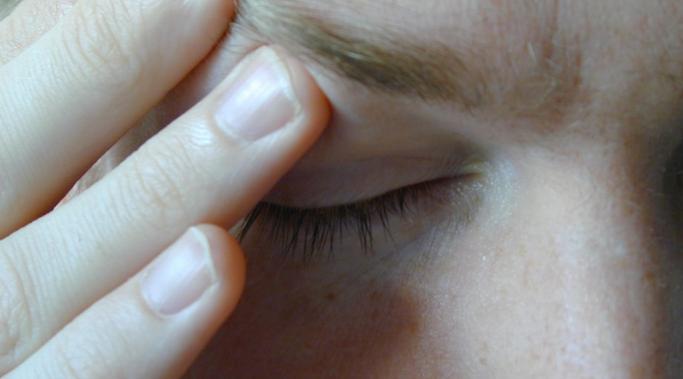When I got diagnosed, I was attending a university and on my way to getting a bachelors of computer science. I was a pretty fastidious student in my first year and my grades were excellent. But before I knew what a mental illness was, I became sick and my grades dropped. It was only some time later that it became clear it was because I had bipolar disorder.
And after months of treatment, nothing was working and one day, my doctor said to me,
"You should drop out of school; you're never going to be able to finish your degree."
Really? Pshaw.
Breaking Bipolar
Last week I wrote about how psych meds can make you feel boiling hot or freezing cold. And, of course, they can.
What surprised me is the number of people who wrote in here and on Facebook about how they didn't know that. Not only did they not know it, but it had been happening to them and they didn't know it. They didn't make the connection and in some cases the doctor said it wasn't possible (like mine did).
This brings me to something I always say:
An effect that occurs after starting a medication is a side effect until proven otherwise.
Everyone who takes psychiatric medication is aware of side effects. Common side effects include things like dry mouth, headache, nausea, fatigue and so on. I've been a cluster of side effects longer than I can remember.
(My very favourite is the one where I couldn't open my eyes in the morning and I thought I was blind. Ah, but for another day.)
And one of the side effects I have had several times with medications, particularly antipsychotics, is temperature dysregulation. In other words I'm always freaking cold (or way too freaking hot).
I write an obscene amount. Here, plus my blog plus I write for other blogs and do technical articles. Oh, and I'm working on a book.
This is very difficult though as I've found that a highly symptomatic bipolar brain turns into something more akin to a bipolar rock.
Despite what many people think, mental illness isn't just about "being sad" or hallucinating or feeling suicidal - mental illness is about physical pain too. One of the ways people get diagnosed with illnesses like depression is due to physical complaints (what doctors call somatic pain).
When you have a mental illness, not only your brain hurts, but your body does too.
By now we know the symptoms of bipolar disorder - wild mood swings from euphoria (mania or hypomania) to depression. We know that bipolar disorder comes in lots of variants, bipolar 1, bipolar 2, cyclothmia, rapid-cycling and so forth.
But when are the symptoms of bipolar disorder not bipolar disorder? Are there other illnesses that can account for bipolar symptoms?
When is bipolar disorder not bipolar disorder?
It's not my fault. We say it. We think it. We spread it around. It's supposed to assuage our guilt and make others believe we didn't do anything wrong, when maybe we did.
But occasionally, someone has a backbone. Not a politician, not a famous person, not a person in a position of power, but your average person that you interact with, they are capable of admitting they did something less-than-perfectly.
But never, ever is it a doctor's fault. It doesn't matter what they do, or what they say, it's never their fault. They never make a mistake. They never have a bad day. They never make an error in judgement. They never write the wrong name of a drug down on a script. Never, is it ever, their fault.
I have spent many months of my life with an inability to feel pleasure - this is known as anhedonia. This means that no matter what happened, no matter how great it was, I couldn't feel happy about it. I couldn't feel happy at all. However, there is something I have learned about anhedonia, even without an ability to be happy, I can be thankful.
One of the myths about mental illness medication is that it is used to control its taker. In other words, by taking the pills prescribed by a psychiatrist you become a pliable, braindead lemming.
So, let's take a look at my pliable, braindead, lemming life.
Everyone who has been bipolar, or mentally ill in general, for longer than about a day-and-a-half has experienced failed treatments. We've all had medications that didn't work. Therapy that didn't help. Lifestyle changes that did nothing. And so on, and so forth. In fact, most of us experience months of treatment failure before we find treatment that works for our mental illness.
But after years of failure and trying everything you can think of and still being sick, how does one keep going? How do you keep going when mental illness treatment doesn't work?


